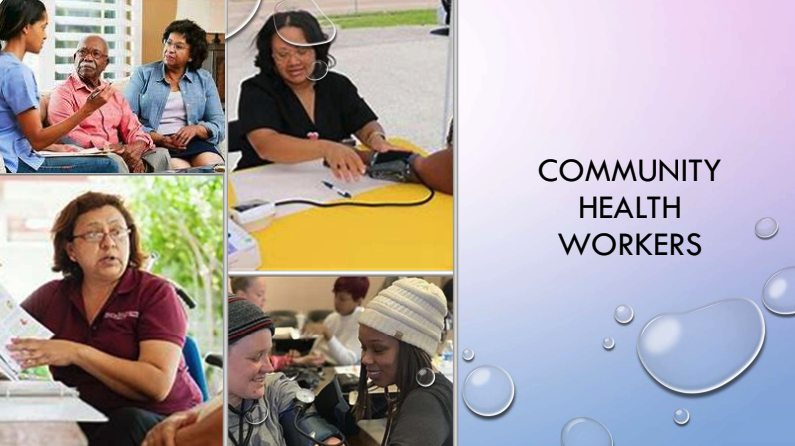
Since the beginning of the COVID-19 pandemic, Community Health Workers (CHWs) have been called upon to step-up, and they have. From providing education messages to people of diverse cultures, languages and backgrounds, to linking COVID-19 patients and their families to essential resources, to assuring people in their communities understand and have access to vaccines, CHWs have been there.
George Floyd’s murder at the hands of police in May 2020 also deeply impacted CHWs and their communities, and the mental health impacts of diverse communities addressing both COVID-19 and racism expanded.
CHWs need to take care of themselves so they can continue in service to their communities. For this reason, NRC-RIM partnered with CHW Solutions to develop, pilot and distribute a CHW self-care curriculum. The curriculum has information, tools and resources focused specifically on the needs of CHWs, to help them maintain their own health, energy, drive and capacity to serve populations most at-risk for COVID-19 and the underlying conditions contributing to its impact.
The goal of the curriculum is to have self-care information, tools and resources readily available to CHWs in a format addressing their unique needs as frontline public health workers reaching communities most at-risk for COVID-19 and other health issues. It also includes links to other related resources CHWs will find helpful to assure they are keeping themselves healthy as they take care of their communities.
In this webinar, hosted by NRC-RIM and CHW Solutions, participants learned about the new self-care curriculum and how to incorporate regular self-care practices and routines into the work of CHWs in their organizations. Watch the recording (passcode: @@K?3WY0) to learn:
- Why community health worker self-care is important
- How to help CHWs engage in self-care
- How to integrate CHW self-care into CHW teams
CHW Solutions recruited more than CHWs and CHW supervisors from around the country to pilot a new self-care curriculum designed just for them. The pilot runs from August 10 - September 7, 2021. Participants are asked to interact with the activities in the curriculum for 6-8 hours over the 4-week pilot period, and to complete pre- and post-surveys about their self-care experiences. Participants are paid a stipend for testing the curriculum and providing feedback.
The CHW self-care curriculum includes:
- Background information on the Community Health Worker role, and the importance and effectiveness of self-care
- How COVID 19 and racism have strained our public health workforce, including CHWs, making consistent self-care routines a necessity
- Understanding stress and how to manage it
- Exercises for getting started with self-care
- Tapping into cultural strengths
- The benefits of self-care
- Taking care of yourself through grief and loss
- Developing an action plan and daily self-care practices
- Activities, videos and other resources to meet the unique self-care needs of each CHW, and to support ongoing engagement in self-care
Pilot participant feedback will be used to finalize the curriculum, and in Fall 2021 the final curriculum will be available online for free.
Macaran A. Baird, M.D., M.S.
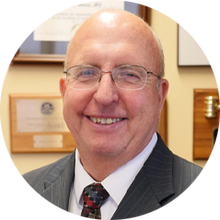
Title: Retired family physician and family therapist
Organization: Independent Contractor
Background related to CHW self-care: After five years as a rural family physician in Minnesota, I entered an academic career in which I both practiced and taught mostly family physicians and mental health clinicians. For the last 15 years I was the Head of the Department of Family Medicine and Community Health at the University of Minnesota.
One piece of advice or a tip I’d give to CHWs about self-care: One cannot give what one does not have. Therefore, only by staying relatively balanced and positive yourself can you encourage others to be the same.
Favorite resources I think might be helpful to CHWs working on their self-care: Stay connected to friends & mentors and find contemplative time and commit to regular sleep and physical activity including walking.
Alexander Fajardo

Title: Executive Director
Organization: El Sol Neighborhood Educational Center
Background related to CHW self-care: I have served as Executive Director of El Sol Neighborhood Educational Center since March 2003, and have led El Sol through strategic planning and sustainability planning which has resulted in unprecedented organizational growth and has garnered the reputation of being the premier Community Health Worker organization in the Inland Empire. El Sol and I have been recognized as leaders in the CHW world. In 2012 El Sol received the Nonprofit Organizational Excellence Award from the Community Connects’ Nonprofit Resource Center. I have facilitated CHW trainings with African American, Native American and Asian Pacific Islander communities; trained agencies across the United States, Mexico and Japan on Community Health Workers philosophy; and have presented at local, state and national conferences.
Favorite resources I think might be helpful to CHWs working on their self-care: Time to Heal
Aimee Hilado, Ph.D., L.C.S.W.
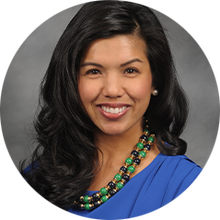
Title: Associate Professor, Northeastern Illinois University & Founding Clinical Director, RefugeeOne Wellness Program
Organization: Northeastern Illinois University and RefugeeOne Wellness Program
Background related to CHW self-care: I started the RefugeeOne Wellness Program in 2011 to promote the health and mental wellbeing of trauma-experienced refugees and immigrants in Chicago while supporting a clinical workforce doing this important work. Self-care and reflective practice has been critical to sustaining a workforce addressing complex trauma. As such, I approach the work of CHWs and self-care from the lens of a clinical practitioner, supervisor and researcher. I am constantly evaluating the importance of self-care as a buffer to experiences of compassion fatigue and secondary trauma amongst a refugee/immigrant-serving workforce, and testing/implementing strategies to ensure the workforce remains engaged and supported.
One piece of advice or a tip I’d give to CHWs about self-care: Each person needs to define their own self-care framework - mindset, strategies, and routine - and implement it with intention and consistency. A self-care routine should not be implemented only in moments when one feels overwhelmed or burned out. It should be prioritized and practiced regularly so that the strategies you've practiced can help buffer the adverse impact of stress, anxiety and moments of feeling overwhelmed.
Favorite resources I think might be helpful to CHWs working on their self-care: I enjoy guided meditation apps including Calm.
Helen Jackson Lockett-El, M.Div.
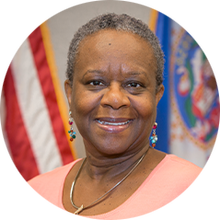
Title: Grief & Loss Support - Independent Contractor
Organization: CHW Solutions
Background related to CHW self-care: Ms. Lockett-El has an undergraduate degree in biology from the University of Minnesota and a master's degree from Luther Seminary. She completed her residency in Clinical Pastoral Education at Hennepin County Medical Center and is a Certified Perinatal Educator (COPE). She has a passion for community and considers herself a community healer and health educator. Ms. Lockett-El is an ordained minister who has worked several years as a chaplain in Minneapolis and Saint Paul trauma centers. She is actively engaged at Grace Temple Deliverance in Minneapolis and in Stephen Ministry leadership and grief and loss facilitation at Berean Baptist Church in Burnsville, Minnesota.
One piece of advice or a tip I’d give to CHWs about self-care: The most important advice for self-care is to be gentle with yourself, yet adventurous and have fun. Life is too short, live free and draw from the joy and strength within!
Favorite resources I think might be helpful to CHWs working on their self-care:
Karen Jankowski, M.D.
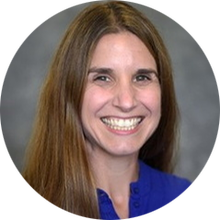
Title: Independent Contractor
Organization: CHW Solutions
Background related to CHW self-care: As a family physician working at a community clinic and consultant for CHW Solutions, I have had the opportunity to consult and share knowledge with community health workers for a few years. Regarding self care for health professionals, I have become increasingly aware that the health of each caregiver substantially affects those for whom they are caring and have begun to integrate this into my own life as well. As the pandemic has taught us, we are all interconnected!
One piece of advice or a tip I’d give to CHWs about self-care: One change that I have learned (and am still learning) to make and encourage others to consider is to evaluate the priorities in your life while putting your own wellbeing at the top of the list. Then plan your days accordingly. You may find the need to say "no" or limit other activities in order to make time for the things that are rejuvenating to you - this can be difficult but is so rewarding. Each of us needs to do our part to be healthy and steady so that we can be more present to those around us!
Favorite resources I think might be helpful to CHWs working on their self-care: Whole Person Caring: An Interprofessional Model for Healing and Wellness by Lucia Thornton
Ron Jankowski, M.D.
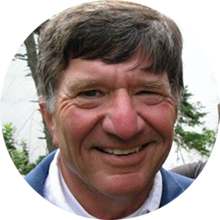
Title: Medical Director
Organization: CHW Solutions
Background related to CHW self-care: I have worked with CHWs to provide medical education and oversight for the past several years. During these times we have discussed self care and given various suggestions and resources.
One piece of advice or a tip I’d give to CHWs about self-care: If CHWs do not care for themselves, they will be less capable of caring for others.
Favorite resources I think might be helpful to CHWs working on their self-care: I would suggest "Blue Zones" and "Thrive " by Dan Buettner.
Dulce Lopez, Psy.D.
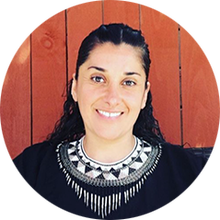
Title: Consultant; Spanish-Speaking Licensed Psychologist
Organization: Founder of Metamorfosis: thru Love
Background related to CHW self-care: I have over 15 years working in the mental health field and I am often advocating for the self of the therapist/provider as a means for sustainability. I believe it is imperative for individuals in the helping field to take care of their own wellbeing to decrease burnout and increase life satisfaction. I am a passionate advocate for the wellness of those that hold sacred space for the community.
One piece of advice or a tip I’d give to CHWs about self-care: My go-to wellness/self-care activity is to connect with nature and the four elements. I often utilize the four elements (Earth, Water, Air, Fire) as a grounding technique. Here are just a few examples:
- Earth: walk with bare feet, plant something, tend to plants
- Water: go to the beach, shower, soak my feet in water, stay hydrated
- Air: take deep breaths, sit under a tree
- Fire: light a candle, remind myself that my spirit/soul is like a flame
Favorite resources I think might be helpful to CHWs working on their self-care: My favorite resources for mental health/wellbeing are to be in nature, read a book that speaks to my soul, journal and/or create art in my Love Journal. Making time to re-connect to our unique inner being is imperative to understand when one is feeling depleted and knowing what is needed for restoration.
Richard Oni, Ph.D.

Title: Director of Services and Training
Organization: Progressive Individual Resources Inc.
Background related to CHW self-care: My background is in behavioral health and I have developed a training curriculum in mental health behavioral aide. As part of my consulting in mental health, I trained mental health practitioners to take care of themselves. Self care of counselors is an essential component of effective counseling.
One piece of advice or a tip I’d give to CHWs about self-care: It is important that we mental health professionals nourish our own wellness because when we are well, we will be able to connect with our clients. So also the Community Health Workers should do. I occasionally take time away from work to sensitize my mental health and minimize burnout!
Favorite resources I think might be helpful to CHWs working on their self-care: Why Self Care Should Matter to Healthcare Workers by Palliative Care Australia
Preview what to expect
Watch the webinar we conducted in December 2020, CHWs and COVID-19: Trauma, Hope and Helping Others - Are You Pouring From an Empty Cup?, geared at community health workers experiencing compassion fatigue and secondary stress. Let us know how we might expand on this as we develop our curriculum.
Tell your story
If you are a community health worker, you know that this work is both rewarding and challenging. Tell us about your work and the things you do to take care of your mental health. Your story will inform the curriculum currently under development. If you wish, we can also feature your story on our website.
Read the playbook
Check out the Playbook for Local Public Health Department Strategies in the United States created by the Community-Based Workforce Alliance for information on how you can support CHWs in your organization. Short on time? We have a summary online.
Make a plan
Use the information from the playbook, and find inspiration from our pilot program in Steele County, MN, to make a plan for integrating CHWs in your community's COVID-19 response and recovery efforts.
